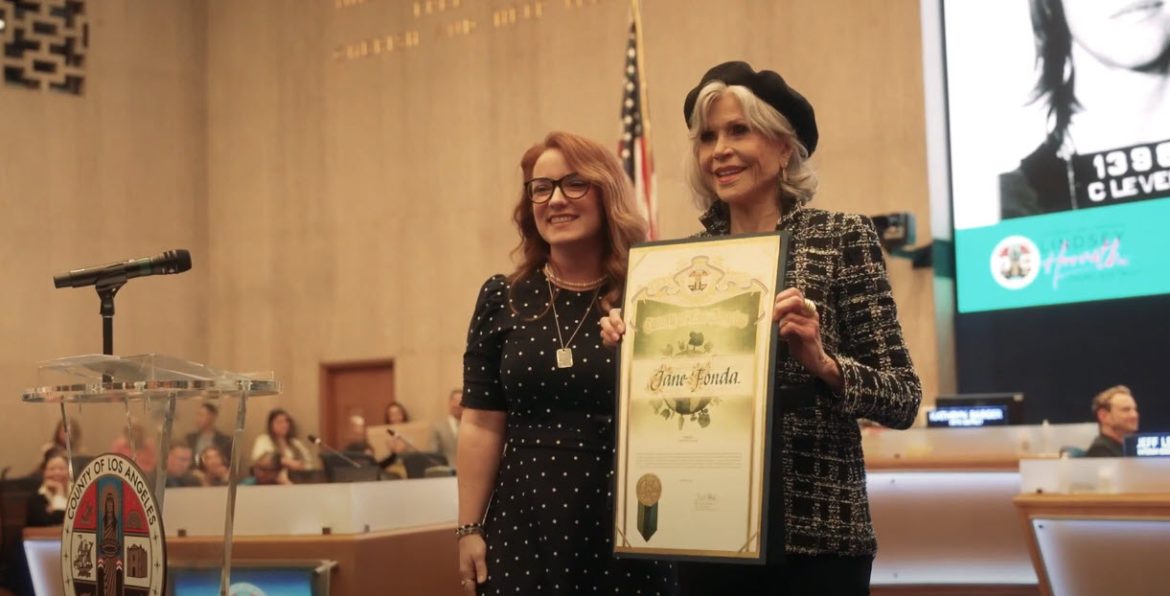Jane Fonda’s Vietnam War-era protests are once again stirring controversy in Los Angeles County. Last month, County Supervisors declared April 30 as “Jane Fonda Day” to honor her long-standing advocacy for social justice and environmental issues. However, the decision has sparked significant backlash from Southern California’s Vietnamese community.
April 30 is also known as “Black April,” a somber day commemorating the fall of Saigon in 1975, when North Vietnamese Communist forces captured the city, leading to its renaming as Ho Chi Minh City. This event marks a painful chapter in the history of Vietnamese Americans, many of whom fled the country to escape the communist regime.
The controversy stems from Fonda’s actions during the Vietnam War, particularly a notorious photograph taken 50 years ago, in which she was seen posing with North Vietnamese Communist soldiers. This image earned her the nickname “Hanoi Jane” and has been a source of deep resentment among Vietnam War veterans and the Vietnamese diaspora.
In response to the outcry, County Supervisors are now considering moving “Jane Fonda Day” to early April starting next year. This change aims to respect the significance of “Black April” and address the concerns raised by the Vietnamese community.
Fonda has previously expressed regret for her actions during the Vietnam War. In a 2018 podcast interview on the “Today” show, she acknowledged the pain her actions caused and apologized, stating, “I will go to my grave with regrets about that.”
Despite her apologies, the designation of April 30 as “Jane Fonda Day” has reignited old wounds and highlighted the enduring impact of historical events on contemporary communities. The Supervisors’ decision to reconsider the date reflects a recognition of the need to balance honoring contributions to social justice with sensitivity to historical trauma.
The Richard Nixon Foundation examines the impact of prominent anti-war figures like Jane Fonda and former U.S. Attorney General Ramsey Clark on the Vietnam War’s duration and dynamics. Critics argue that their high-profile visits to North Vietnam and vocal opposition to U.S. military actions provided propaganda victories for the communist regime, potentially bolstering their resolve and complicating peace negotiations. Jane Fonda’s infamous 1972 visit, where she was photographed seated on an anti-aircraft gun used to shoot down American planes, and Ramsey Clark’s subsequent trips to Hanoi, have been cited as actions that may have inadvertently prolonged the conflict by giving the North Vietnamese government moral support and encouraging them to hold out against U.S. efforts. These controversial actions remain a subject of intense debate regarding their impact on the war’s length and outcome.
In closing, as discussions continue, the Supervisors aim to find a resolution that honors Fonda’s contributions while respecting the memories and experiences of the Vietnamese community in Southern California.



